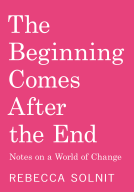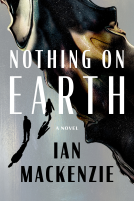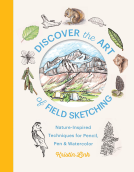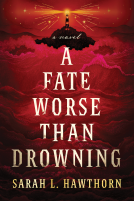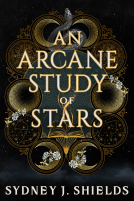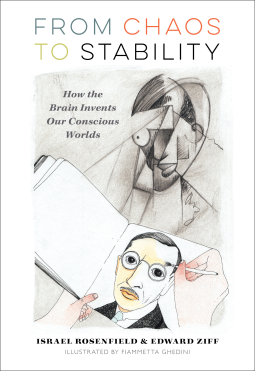
From Chaos to Stability
How the Brain Invents Our Conscious Worlds
by Israel Rosenfield; Edward Ziff
This title was previously available on NetGalley and is now archived.
Send NetGalley books directly to your Kindle or Kindle app
1
To read on a Kindle or Kindle app, please add kindle@netgalley.com as an approved email address to receive files in your Amazon account. Click here for step-by-step instructions.
2
Also find your Kindle email address within your Amazon account, and enter it here.
Pub Date Sep 17 2024 | Archive Date Sep 17 2024
University of Iowa Press | University Of Iowa Press
Talking about this book? Use #FromChaostoStability #NetGalley. More hashtag tips!
Description
At the heart of Israel Rosenfield and Edward Ziff ’s inquiry is the nature of brain function. The sensory world is disordered and chaotic. There are no labels for tables, chairs, or airplanes, and indeed there are no colors, sounds, or smells, only photons, airwaves, odorant molecules, and so on, which are unlabeled and impossible to “know.”
To make sense of this chaos, the brain must simplify the sensory inputs by creating, or inventing, the colors, sounds, smells, forms, and faces that are perceived in consciousness, which become a proxy for the chaotic world in which we live. The brain’s ability to generalize and categorize these invented perceptions, and to relate them to one another, enables it to form memories, which are not fixed representations of things past, but a dynamic and malleable function of the brain that is relational.
When formation of these worlds breaks down, neurological differences arise. Although the mechanisms that transform sensory chaos into the simplified perceptions experienced in consciousness remain elusive, Rosenfield and Ziff relate what they have learned by means of imaging brain activity and by mapping the neural circuits that comprise memory traces. In addition, the authors offer perspectives for future studies of consciousness.
Advance Praise
“How do we make sense of the ‘blooming, buzzing confusion’ that exists in the world around us—the sight of trees, the sounds of birds, and the smell of our grandmother’s kitchen—and even store memories of those things? And what are the consequences when those processes breakdown? In From Chaos to Stability, Rosenfield and Ziff wonderfully work through the argument that sensory perception and memory is a creative, personalized, generative process of the brain to simplify and make sense of a complicated world. If a tree falls in the forest and no one is there, does it make a sound? No, argue the authors. Sounds, and other sensory perceptions, are the creation of the brain in the attempt to make sense of the different, dynamic forms of energy and matter with which we are surrounded. Some, but not all, of those experiences reach our consciousness and allow us to experience our lives within what appears to be a stable temporal and spatial flow. The book is written for a lay audience and sets the arguments within a rich overview of the history of these fundamental questions. For those wanting a more detailed understanding of some of the underlying science, there is an outstanding appendix that gives a brief background on the neuroscientific basis of the book’s main points. A very enjoyable read, including rich historical references and case studies on how the brain helps create our experienced lives and what happens when it fails to do so.”—Donald A. Wilson, coauthor, Learning to Smell: Olfactory Perception from Neurobiology to Behavior
Available Editions
| EDITION | Other Format |
| ISBN | 9781609389895 |
| PRICE | $19.00 (USD) |
| PAGES | 142 |
Available on NetGalley
Average rating from 5 members
Featured Reviews
 Debbie J, Reviewer
Debbie J, Reviewer
I enjoyed this physiology/neuroscience general reader book. It felt a bit like lectures converted to chapters. I loved the illustrations. It gave a sense of history and current state of knowledge regarding how memories are found, how we construct visual pictures in our brain etc. a slim and enjoyable book. Thank you to #netgalley and the publisher for an ARC.
 Reviewer 1439445
Reviewer 1439445
This book tells of an ambitious exploration of the complex processes by which the brain constructs our conscious experience. The authors, both well-established figures in neuroscience and cognitive science, aim at bridging the gap between chaotic neural activity and the coherent, stable perception of reality we experience.
I approached this book with an interest in the treatment of complex systems, specifically how the brain's chaotic neural dynamics can give rise to the stable patterns we recognise as consciousness. The book does a commendable job of explaining how chaotic systems in the brain - characterised by seemingly random or unpredictable neural firings - can stabilise into coherent mental states through mechanisms such as neural plasticity and feedback loops.
However, the authors provide a broad overview of the mathematical principles underlying chaos and stability and often stop short of delving into the intricate mathematical models that could better support their arguments. For an audience with a strong background in mathematics or theoretical physics, this can be a point of frustration, as the complex interactions between chaotic systems and stable patterns are presented in a somewhat simplified manner.
One of the book's strengths is its interdisciplinary approach. The authors successfully integrate insights from neuroscience, cognitive science, and philosophy of mind, creating a rich tapestry that offers a comprehensive view of consciousness. The discussions on how neural patterns stabilise to create a coherent sense of self and reality are compelling, particularly when they touch on philosophical implications regarding the nature of consciousness and the self.
The authors also address how these processes are fundamental to learning and memory, making connections to educational theory and the ways in which stability in neural processes is necessary for the acquisition and retention of knowledge. This connection to educational practice is particularly interesting from the perspective of maths education, where the stability of conceptual frameworks is essential for effective learning.
The authors are adept at explaining complex scientific concepts in an accessible manner, making this book suitable for a broad audience, including those without a strong background in neuroscience or mathematics. The narrative is engaging, and the authors use analogies and real-world examples effectively to illustrate their points. This accessibility is a significant strength, particularly for readers who are new to the field of cognitive science.
 Markey O, Educator
Markey O, Educator
A great beginner's overview into the complexities of the neuroscience of perception, giving an accurate introduction in layman's terms.
 Anne M, Reviewer
Anne M, Reviewer
There is an awful lot going on in these pages. It covers physiology, psychology, philosophy, and neuroscience among many other subjects and it does the whole thing smoothly and in a way that is easy for a non expert to follow. I have no experience in any of those but I found this a fascinating look at a very complex topic. What do we ‘see’ when we ‘see’ something and how do I know that what I’m seeing is the same thing you’re seeing? And how come a small bunch of atoms in my hand that could be called a flower, agitates/excites another load of atoms in a series of cells etc and I’m ‘seeing’ a flower. It’s all explained and it is an excellent way for a beginner to pick up a few ideas and learn some of the crucial language.
The drawings are interspersed to give pause and allow the reader a moment to think on what they’re reading. Plus the many, many examples of people whose brains don’t operate how they should give clear illustrations of how we ‘know’ things about our brains.
I enjoyed this and it would make a great gift for anyone interested in consciousness and how we perceive things.
I was given a copy of this book by NetGalley
Readers who liked this book also liked:
Kristin Link
Arts & Photography, Crafts & Hobbies, Outdoors & Nature

